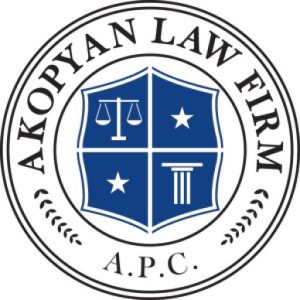La Mesa Employment Law Attorneys
Employment Litigation in La Mesa, California
La Mesa, often called the “Jewel of the Hills,” sits just nine miles east of downtown San Diego. With its tree-lined streets, walkable downtown, and a blend of historic and modern neighborhoods, La Mesa offers the atmosphere of a close-knit community within easy reach of the city’s major business and cultural centers.
 Founded in the early 1900s and incorporated in 1912, La Mesa grew steadily alongside the expansion of San Diego’s trolley lines, which connected it to surrounding communities and helped shape its identity as a welcoming residential and commercial hub. Today, La Mesa’s population exceeds 60,000 residents, and its local economy spans healthcare, education, construction, hospitality, and professional services. While the community maintains a small-town feel, its workforce and employment relationships are as diverse and complex as any in the region.
Founded in the early 1900s and incorporated in 1912, La Mesa grew steadily alongside the expansion of San Diego’s trolley lines, which connected it to surrounding communities and helped shape its identity as a welcoming residential and commercial hub. Today, La Mesa’s population exceeds 60,000 residents, and its local economy spans healthcare, education, construction, hospitality, and professional services. While the community maintains a small-town feel, its workforce and employment relationships are as diverse and complex as any in the region.
Akopyan Law Firm, A.P.C. represents employees and employers in La Mesa in all types of employment-related disputes. Our attorneys concentrate exclusively on employment litigation and bring years of courtroom experience to every case.
Employment Law in La Mesa
In La Mesa, as across California, employment relationships are governed by extensive state and federal laws. These laws define the rights and responsibilities of both workers and employers — covering everything from termination and compensation to workplace conduct and retaliation. When violations occur or conflicts arise, resolving them often requires experienced legal representation.
Akopyan Law Firm handles employment litigation throughout La Mesa and San Diego County. We represent clients in cases involving wrongful termination, discrimination, harassment, retaliation, and wage-and-hour disputes. Our attorneys understand how these cases develop and how to build effective strategies for resolution through negotiation, mediation, arbitration, or trial.
Representation for La Mesa Employees
Employees are the foundation of La Mesa’s economy, from public-sector professionals and educators to healthcare workers, service employees, and tradespeople. When a job situation turns hostile, discriminatory, or unlawful, the consequences can reach far beyond the workplace.
Our firm stands with employees who have experienced wrongful termination, harassment, discrimination, retaliation, or unpaid wages. We approach every case with purpose and preparation, working to protect our clients’ rights under California law and to achieve outcomes that restore confidence and stability.
Litigation for La Mesa Employers
Employers in La Mesa face a challenging legal environment. Even when businesses strive to comply with the law, disputes can arise over discipline, termination, or pay practices. When that happens, it’s critical to have experienced counsel capable of handling employment litigation effectively and decisively.
Akopyan Law Firm defends employers against claims of wrongful termination, discrimination, retaliation, and wage-and-hour violations. We understand the importance of managing litigation with efficiency, professionalism, and discretion. Our attorneys bring a disciplined approach to every case, combining legal insight with trial experience to protect our clients’ interests.
La Mesa’s Community and Workforce
La Mesa’s character is built on connection — between neighborhoods, generations, and businesses. Its revitalized downtown, growing restaurant scene, and blend of local enterprise and professional services make it a uniquely balanced city. With its expanding job base and mix of small businesses and large employers, employment relationships in La Mesa often reflect the same diversity that defines the community itself.
Akopyan Law Firm is familiar with the realities of working life in La Mesa and throughout the East County area. We provide litigation services designed to meet the needs of this dynamic workforce, offering every client strong advocacy and dependable legal representation.
Contact Akopyan Law Firm, A.P.C.
If you are an employee or employer in La Mesa involved in an employment dispute, Akopyan Law Firm is ready to help. Our practice is dedicated exclusively to employment litigation, and our attorneys have extensive experience representing clients across Southern California.
To learn more or to schedule a confidential consultation, contact Akopyan Law Firm, A.P.C. today. Our team is committed to providing skilled advocacy and achieving results in every employment law matter we handle.
We Can Help La Mesa Residents With Cases Involving:
Featured Article:
Wrongful Termination After Family Medical Leave in California Retail, Restaurant, and Hospitality Jobs
📌 Key Takeaways Termination after family medical leave in California’s retail, restaurant, and hospitality jobs often raises serious questions about disability rights, retaliation, and job protection. Front-Line Workers At Risk: Workers in front-line store, restaurant, and hotel roles often face sudden termination after taking time off for serious health conditions or caregiving. Laws Protect Medical Leave: Federal and California laws like FMLA, CFRA, FEHA, and the ADA aim to protect eligible employees who use qualifying family medical leave. Red Flags After Return: Sharp schedule cuts, sudden write-ups, or claims that medical appointments are too disruptive, especially when others take similar roles, can signal retaliation concerns. Industry Pressures Create Vulnerability: Tight staffing, fluctuating customer demand, and pressure to keep labor costs low can push managers to sideline workers who needed legally protected time away. Legal Review Clarifies What Happened: A California employment attorney can review timelines, documents, and workplace behavior to assess whether termination reflects lawful business reasons or potential legal violations. When family medical leave collides with sudden job loss, the story in schedules, comments, and timing often matters as much as the paperwork. California retail, restaurant, and hospitality workers facing termination after family medical leave will see their own experiences reflected here, preparing them for the detailed overview that follows. For many California retail, restaurant, and hospitality workers, family medical leave becomes necessary after a serious health condition or a major medical event affecting a close family member. When a job suddenly disappears right after that leave, the experience can feel shocking and deeply unfair. In some situations, this kind of job loss may be connected to wrongful termination, disability discrimination, or retaliation for using protected family medical leave. Who This Happens to in Retail, Restaurant, and Hospitality Work In Southern California, these problems often affect the people who keep stores, restaurants, and hotels running from the ground up. Cashiers, stockers, sales associates, warehouse floor workers, servers, bussers, line cooks, dishwashers, baristas, hotel housekeepers, front-desk clerks, banquet staff, and porters spend long hours on their feet, lifting, bending, and moving quickly under pressure. A back or leg injury, surgery, chronic illness, or other serious medical condition can make that physical work extremely difficult. Many workers also carry responsibility for a spouse, child, or parent with serious health conditions. When a worker uses family medical leave or asks for time away to care for a loved one, the paycheck at stake often supports rent, food, and basic bills for the entire household. When termination follows soon after that leave, many workers report feeling shocked, angry, and ashamed, wondering whether asking for time away was a mistake. This combination of physical strain, caregiving duties, and sudden job loss is exactly where family medical leave and disability protections often come into play. Family Medical Leave and Serious Health Conditions – A High-Level Overview Federal and California laws, including the Family and Medical Leave Act (FMLA) and the California Family Rights Act (CFRA) aim to protect eligible employees who need time off... Read more
Fired After Family Medical Leave? What California Warehouse and Production Line Workers Should Know
Why Warehouse and Production Workers Are Especially Vulnerable After Family or Medical Leave Warehouse and production jobs in Southern California typically combine heavy physical work with strict production pressure. A picker, packer, forklift operator, machine operator, or assembler may spend long shifts lifting boxes, moving pallets, and working beside conveyor belts with scanners and timeclocks tracking every minute. When a back, shoulder, leg, or similar bodily injury occurs, or when a close family member faces a serious health condition, family or medical leave can become unavoidable rather than optional. Under California law, and under related federal legal frameworks, some workers may receive protections when they take family and medical leave for serious health conditions or qualifying family needs. Those legal frameworks typically focus on ensuring that workers are not punished simply because they needed protected time away from work. At the same time, employers in high-pressure warehouse environments often prioritize staffing levels, quotas, and speed, which can create tension between production goals and protected leave. What Termination After Family Medical Leave Looks Like on the Warehouse Floor Termination after family or medical leave rarely appears out of nowhere. Many warehouse and production workers describe a sequence of events that begins when they mention a surgery, medical recovery, or a family member’s serious health condition. A long-time worker with a clean record may suddenly receive write-ups for minor issues shortly after requesting time away for surgery. A supervisor who once praised reliability may begin documenting attitude problems or “not being a team player” only after the worker explains that heavy lifting is unsafe for a period of time. Common patterns can include: Replacement of the worker on the line while the worker is still on leave, with a later statement that the position has been “eliminated,” even though similar roles continue. A return from leave followed almost immediately by termination for vague reasons such as “not a good fit” or “business needs,” while the employer continues to hire for comparable positions. Reassignment on return to overwhelmingly harsh shifts or tasks that disregard disability-related restrictions, followed by termination for “performance” when the worker cannot meet those demands. These patterns can create confusion and embarrassment, especially for workers who followed procedures, kept supervisors informed, and expected their past loyalty to count for something. When a Firing After Family Medical Leave May Cross the Line California employment law can, in certain circumstances, protect workers from adverse employment actions that are motivated by the worker’s need for or use of protected family or medical leave. Termination decisions can be complex, and no single fact automatically establishes that a firing is unlawful. However, particular red flags may suggest that the stated reason for termination is not the full picture of the employer’s motivation. Examples of potential warning signs include: A previously strong record that is followed by a sudden wave of discipline only after leave is requested or taken. Comments that connect frustration directly to the worker’s absence, recovery time, or future medical appointments. A... Read more









Millions of Dollars Recovered For Our Clients
Check Out Our Case Results




